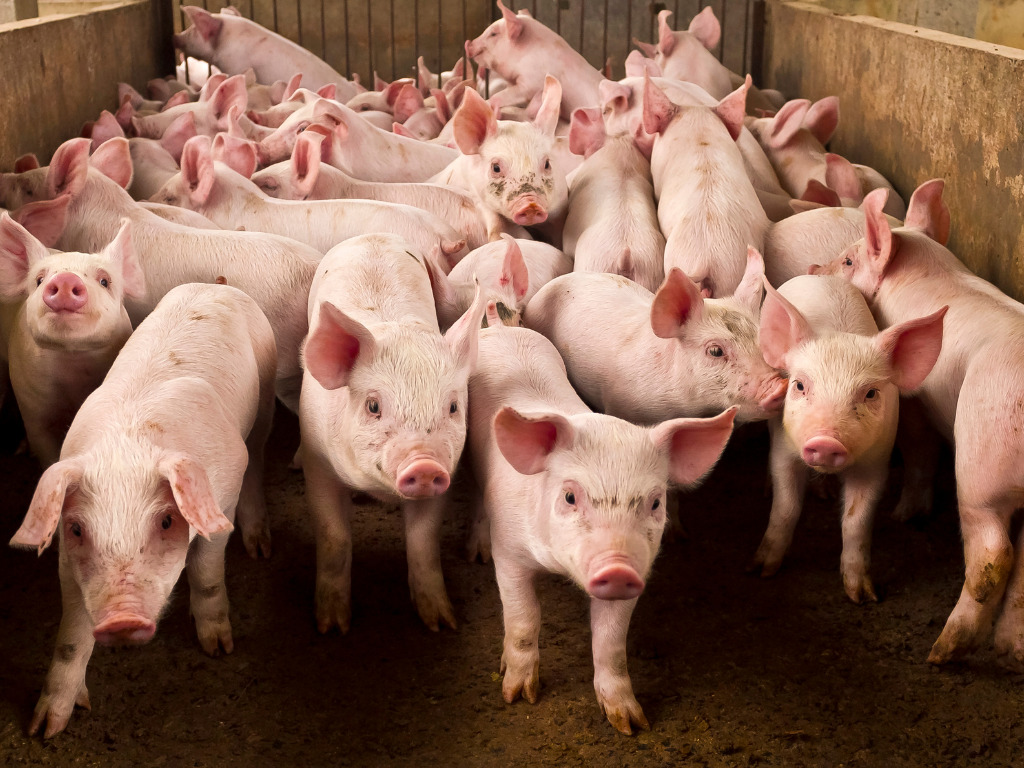
Compassion in World Farming’s Christopher Browne argues how factory farming both contributes to – and is impacted by – the climate crisis. And the vicious cycle must stop.
17,000 dead cattle. 1.2 million dead chickens. And a 342 million US dollar blow to the economy. This was the damage done to Rio Grande Do Sul – a farming region in southern Brazil – within the space of just days, last May. The cause? Violent floods, worsened by the climate crisis.
Globally, extreme weather events are becoming more frequent and devastating. The reason for this is the rise of greenhouse gas (GHG) emissions. But beyond the classic culprits of energy and transport, another sector is to blame. A sector which tends to slip under the radar.
The food we eat, and the system built around it, is responsible for a third of total global GHG emissions. And animal farming – dominated by cruel, polluting, factory farms – produces more direct GHG emissions than all the world’s planes, trains and cars combined.
A broken system

Our broken system is trapping animals, farmers and our food supply in an inescapable doom loop.
From heatwaves across Europe to hurricanes in the US, a new report by Compassion in World Farming features what happened in 11 extreme weather events – just a snapshot of the bigger picture. It reveals that over 14 million farmed animals have been killed as a direct result of these climate disasters, and over 56 million people impacted, at an estimated global cost of $120B.
Following floods in Emilia-Romagna, the Italian region famous for Parma ham and Parmigiano cheese, pigs were seen swimming, and piled up dead, in their hundreds. In Nigeria, more than 500,000 birds were reported dead from heat stress in just one month – the true figure was likely much higher. In the US, up to 5 million chickens were killed by Hurricane Helene. These disasters all took place in the past two years, and they are becoming increasingly common.
Factory farms make food security worse, not better
When animals are crammed together in their thousands – as is the case in factory farms – they are sitting ducks when a flood, heatwave, or hurricane strikes. This makes our food system extremely vulnerable, too – threatening food security. That means rising prices, empty supermarket shelves and ultimately, with a growing global population, people going hungry.
That’s why we need urgent reform to our food and farming system. Without it, the apocalyptic scenes of last summer in Rio Grande Do Sul will become the new normal.
Right now, on the opposite side of Brazil and the edge of the Amazon rainforest, preparations will be ramping up for COP30. Taking place in November, this major conference is a pivotal moment for global action on the climate crisis. Last year’s southern floods – and their ramifications for food security – should remain front and centre of host President Lula’s mind, and those of the other Heads of State attending.

There’s no silver bullet for livestock emissions
With a sweltering planet, an increasing frequency of extreme weather events, and more and more mouths to feed, the food question is getting harder to ignore. Unfortunately, there’s no silver bullet.
Just last year, a Harvard study with 200 leading climate, food and agriculture scientists refuted sustainable intensification as a solution for reducing animal agriculture emissions. Most (90%) believed that reducing meat consumption – particularly in the Global North – would be the most effective action.
It’s now or never
It’s clear that a total transformation of our global food system is the only option. We must dramatically reduce livestock production and meat consumption– especially in richer countries – whilst also establishing proper plans for climate resilience. Governments must support farmers to move away from cruel, unsustainable factory farming and towards responsible climate- and nature-friendly practices.
Our planet, farmed animals, economies, and the food on our plates are all under serious threat. We must act now before it’s too late.
Sign Compassion in World Farming’s global petition calling for a more sustainable food system.
The post Op-Ed: It’s Time to Break the Factory Farm Doom Loop appeared first on Green Queen.
This post was originally published on Green Queen.